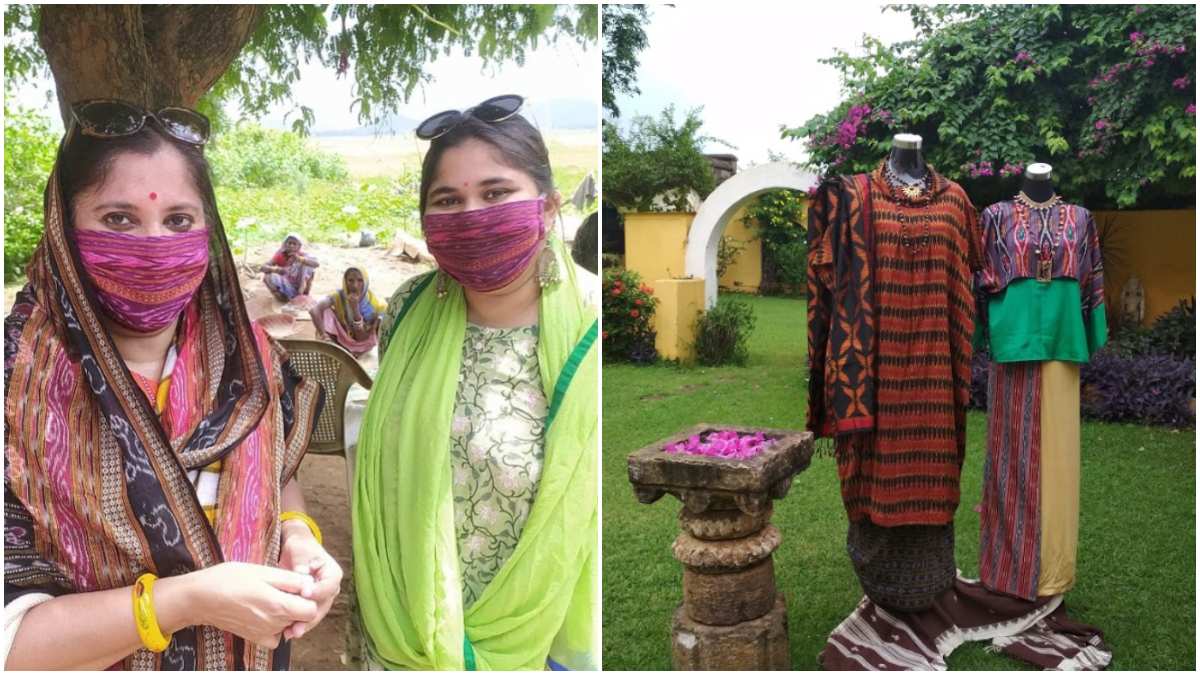


Blue-blooded Indians have a truly tough mantle to wear. Heirs to a rich legacy, born to the arts and living in a fort or palace full of craft, they still position themselves as citizens of a democratic India. Go to the same schools, seek jobs or run businesses like any one of us. Yet once in their state, their region, its incredible how they get back to their original role of a patron. How they adopt the crafts and culture of their forefathers and its masters. And how with their evolved, contemporary design sense take it forward to adapt to the new world.
It was nearly a decade ago that I stumbled into their world, starting a revivalist project called Royal Fables. The scribe in me, the design addict felt like a child let loose in a candy store. I was swept off my feet with the way the royals patronised their local cultures bringing folk musicians, artists, weavers, cooks, and jewellers under their wing, allocating for them a space they called a Karkhana within their sprawling premises. A designated space where each of these masters could work in peace. Made for the Maharaja was a fable that turned real here in these studios. It was while in the residency of Emperor Akbar that Mian Tansen discovered the Tarana. It was in the fort of Kishangarh that Nihal Chand created his miniatures of Lord Shrinath. It was in Rampur and then Ayodhya that Begum Akhtar immortalised the thumri and Jaipur where Lalitabai recorded her first song on a gramophone.
Starting today, this column will rediscover the royal footprints in culture and look beyond their indulgences in Europe: The Cartier neckpieces they bought, or the Rolls Royce they converted into dustbins to real stories of valour and patronage.

A cordon bleu Indian first I want to offer a little window to their ‘real world’ which is nationalistic, committed and socially-driven.
So let’s start our journey in these covid times with profiles of Royal Covid heroes. The first in this four part series being Meenal Kumari Singhdeo, daughter-inlaw of the decorated officer and politician K.P. Singh Deo, and daughter of the much celebrated wildlife warrior Ranjit Sinh, retired bureaucrat and the one to write the wildlife act of India.
A craft protagonist she has spent the whole of June and half of May, either reaching out through social media to philanthropists or driving out of her palace in Dhenkanal down dusty roads to far-flung villages where she offers medicine, food and clothes to the Ikat weavers, the Pattachitra artists, the potters, the Dokra crafts people who are sitting totally idle, impoverished and lost ever since the pandemic struck and reached the farthest reserves of Odisha.
A large princely state of Odisha, Dhenkanal is a treasure trove of craft and Meenal, a natural textile revivalist and craft protagonist, has been working with a large community of artisans since 1990.
Once the lockdown eased a bit in May, she reached out to this community and what she encountered was heart-wrenching: “I was horrified to hear their stories of despair and hardship. My daughter, Yashasvini, and I decided to reach out to them with whatever little we could muster. She gave a part of her salary and we started going around distributing dry rations and aid to the artisans and weavers I worked closely with.”
There were many challenges. Maintaining social distance being the biggest. “We would walk into the village and all the 100-odd artisans would rush up to us, overjoyed to receive aid. They would want to come up close. None of them had masks on, so we would have to request them to cover their nose and mouth with their gamuchas and sarees as well as maintain a distance.”
More than that Meenal was disturbed at their state. “The situation was worse than I had anticipated; some of them had reached a state where they were alternating meals with their children. No raw material for the craft was available to work with, no new orders and no sales whatsoever. They were locked up and could not sell even at the local haats, fairs and market places. They had very little stock with them or the stocks were piled up with money blocked as in the case of some weavers. The basket weavers raw material had gathered fungus.”
She reached out to the world and the response was overwhelming. “We bought what little stock they had to encourage them to continue working. Each evening when we would get back we would place images of their craft online and by God’s grace someone or the other would want to buy it.”
Now waiting for the plight of the pandemic to end, Meenal says, “I resonate with the call to buy hand-made Indian. The artisan in the village is capable of making everything the villagers need, their clothes, utensils, art, and home ware. Then why should we not look inwards?” Even city slickers like us she feels can enjoy “a nice Pattachitra much more than a cheap painting from China! Or wear an easy breath Ikat pant rather than the one you get in nylon from the supermarket. Be Indian, buy Indian is my mantra for life.”
It’s been a month and a half and Meenal has reached out to over 500 families of Dokra artisans, weavers, bell metal workers, potters, blacksmiths, basket weavers, brass jewellery makers, straw craft artisans, pattachitra artists, drum makers, wood carvers, honey gatherers and fishermen not only in Dhenkanal but outside too. “A small act of reaching out to a few snowballed into a mission but one close to my heart.”